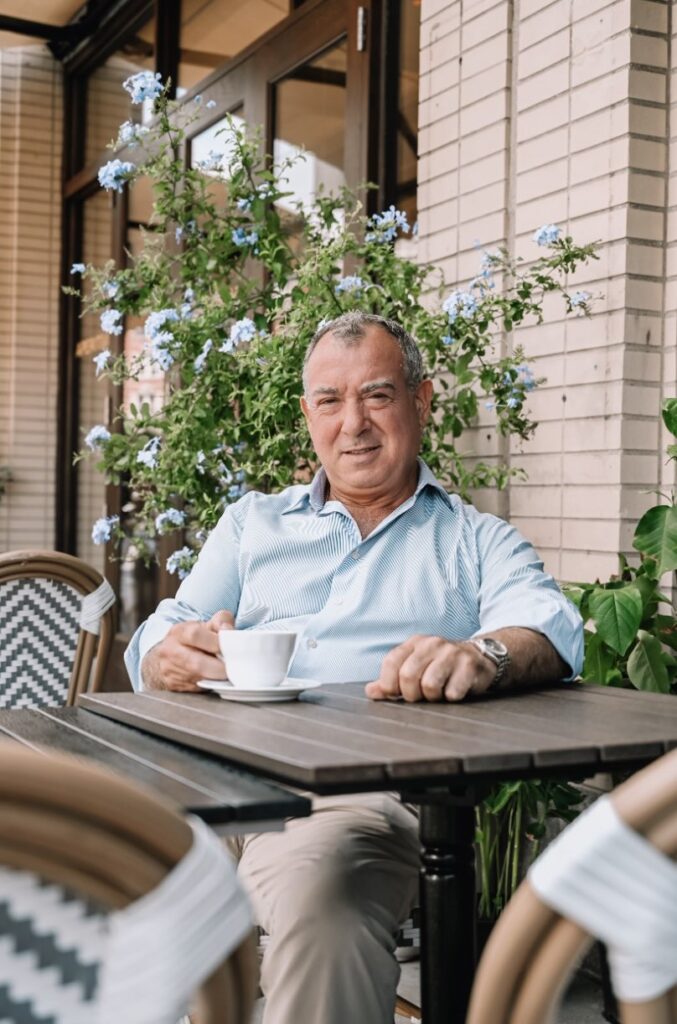For more than a century, New York has been the canvas for Italian culinary dreams. From the red-sauce trattorias of Mulberry Street to the modern pasta bars of the West Village, generations of immigrants have arrived with little more than recipes and ambition — determined to serve the flavors of home while adapting to the rhythms of a new world. But in a city where Italian food is everywhere, authenticity is often more promised than practiced.
That tension — between nostalgia and novelty, between heritage and hospitality — is where Francesco Realmuto has built his name.
A Sicilian-born food entrepreneur with nearly 20 years in the industry, Francesco has returned to the core of his culinary identity through two distinctive Manhattan concepts: Realmuto, an alta pasticceria italiana that offers a refined tour through Italy’s regional desserts, and Ficuzza, a rustic-modern trattoria and pizzeria grounded in the bold, soulful traditions of Sicilian home cooking.
A New York Hero’s Journey
Francesco arrived in New York from Sicily in 1989, a teenager with no clear plan but an instinct for hard work. Like many new arrivals, he pursued stability first. He trained as a diamond cutter, a meticulous trade that taught him precision, patience, and attention to detail — skills that would later find unexpected value in the kitchen.
For more than a decade, he worked in that world, quietly harboring a deep love for food and hospitality. It wasn’t a career yet, but it was always there — a curiosity, a pull. By the early 2000s, that pull became too strong to ignore.
In 2005, Francesco made a bold pivot. He returned to his roots, not with a restaurant, but with something more focused: gelato. He launched L’Arte del Gelato in Chelsea Market, introducing New Yorkers to traditional Italian gelato at a time when the market was dominated by commercial frozen desserts. The response was immediate and enthusiastic. More than just a trend, it was a proof of concept: there was still a hunger in New York for food that felt genuinely Italian.
Building on that success, Francesco went on to open Filaga, a pizzeria known for its wood-fired authenticity, and later Puya, a taqueria born out of his admiration for Mexican culinary traditions — an admiration shaped by years working alongside Mexican colleagues in the food world. Though the concepts varied, the through-line was clear: every venture was grounded in craft, culture, and an ability to connect with real diners.
These early brands earned recognition, loyal followings, and eventually successful exits. But by the time he sold them, Francesco was ready to come home — not geographically, but creatively.
With the formation of Realmuto Hospitality Group, Francesco began the next chapter — one that brought his personal and professional history full circle. His two current establishments represent different facets of Italian identity and execution: one polished and regional, the other rustic and rooted.
Realmuto, named after the founder himself, is an elegant alta pasticceria italiana located in Manhattan. Inspired by Italy’s grand pastry institutions, the space evokes the feeling of stepping into a Milanese or Roman caffè — clean lines, marble counters, and a quiet confidence in its offerings. The menu is structured like a culinary tour of Italy’s dessert traditions: Gelato, Cannoli Siciliani, Millefoglie, Babà Napoletano, Tiramisu, Cassata, and seasonal cakes, all prepared with a reverence for technique and origin. Espresso and Italian wines round out the beverage program, while light fare like tramezzini and focacce make it a destination for both afternoon visits and gourmet food without breaking the bank.

Realmuto isn’t a reinvention — it’s a restoration. Francesco created it to fill what he saw as a void in New York’s pastry landscape: not just Italian flavors, but the formality, balance, and detail of true Italian pasticceria. It’s his surname on the door because it’s the culmination of everything he’s spent his life observing, refining, and building.
Ficuzza, by contrast, is warmer, earthier — a trattoria that speaks the dialect of cucina Siciliana. Named after a small town in the Sicilian countryside where Francesco spent childhood weekends picking chestnuts with his father, Ficuzza brings that memory to life in dishes meant to be shared. Signature items include Spaghetti con le Sarde, Salsiccia alla Griglia with tomato salad, Pasta alla Norma, and Caponata di Melanzane. The pizza program is equally serious — blistered and topped with ingredients like spicy salami or zucchini, served with a dough that reflects real fermentation and craft.

While Sicily is its soul, Ficuzza isn’t bound by borders. The menu makes room for beloved Italian staples like Gnocchi Pomodoro al Pesto, offering a balance between regional fidelity and broader appeal. The space itself is textured and inviting — less formal than Realmuto, but no less intentional. It’s a restaurant that wears its heritage lightly, focusing on flavor and feeling over flash.
Together, the two restaurants offer different expressions of the same values: craft, memory, and respect for tradition. They may look and taste different, but both reflect Francesco’s evolution — and his deep belief that hospitality, at its best, is both personal and shared.
Building for the Long Term
Francesco Realmuto has now spent nearly 20 years in New York’s culinary industry, not only launching restaurants but creating brands that reflect his values. His approach is slow, deliberate, and built for longevity. Where others scale fast and burn out, he refines.
With Realmuto and Ficuzza now open, the focus is on deepening their presence — not just filling seats, but creating spaces that feel essential to the city. Expansion may come, possibly uptown or to other cities, but always with intention.
In an industry driven by novelty, Francesco Realmuto is building something more lasting — rooted in tradition, sharpened by craft, and open to anyone with an appetite for the real thing.

